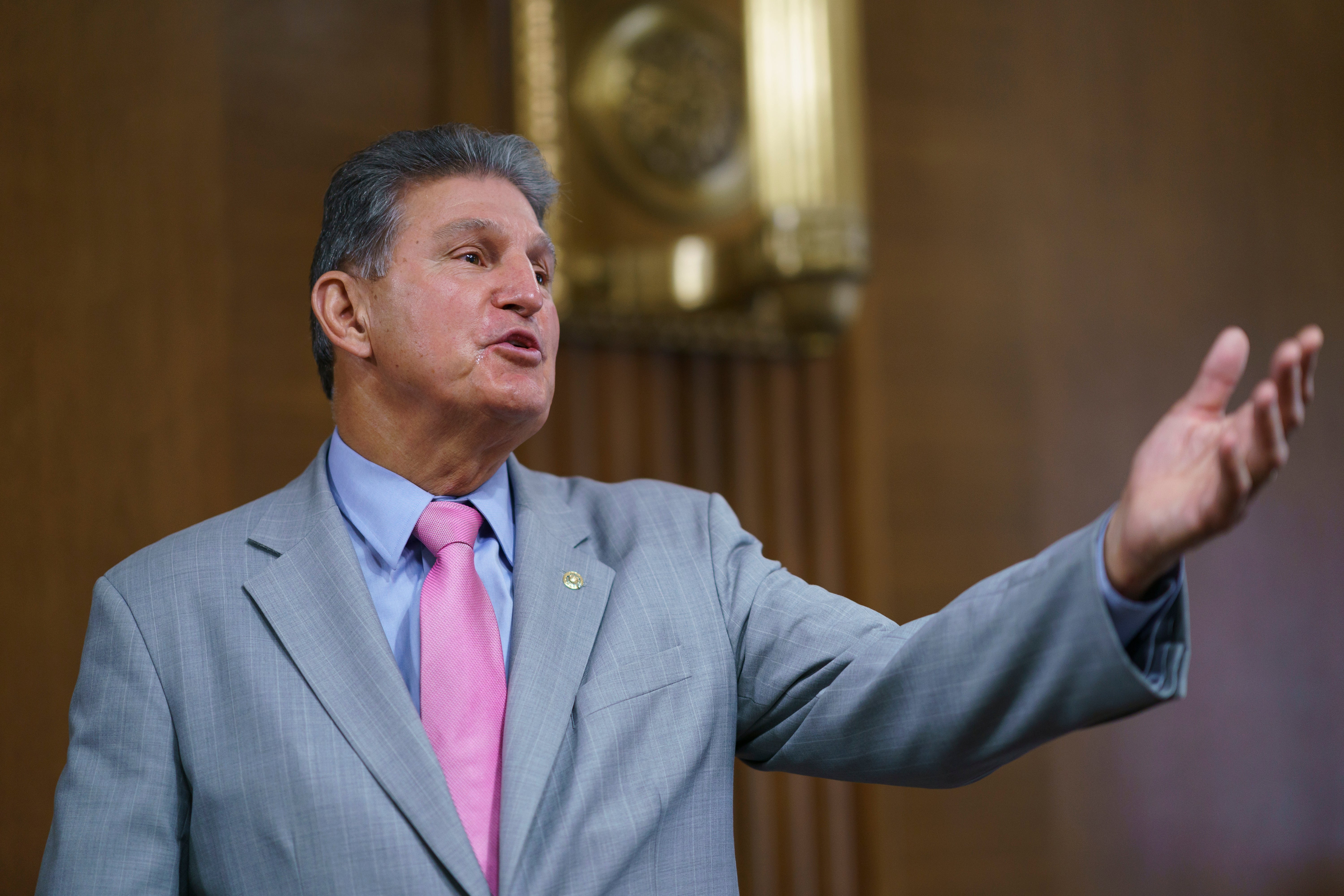Manchin pans DC statehood bill in another break with Dems
A long-shot bid to pass legislation that would make the District of Columbia the nation’s 51st state is stalling in the Senate

Your support helps us to tell the story
From reproductive rights to climate change to Big Tech, The Independent is on the ground when the story is developing. Whether it's investigating the financials of Elon Musk's pro-Trump PAC or producing our latest documentary, 'The A Word', which shines a light on the American women fighting for reproductive rights, we know how important it is to parse out the facts from the messaging.
At such a critical moment in US history, we need reporters on the ground. Your donation allows us to keep sending journalists to speak to both sides of the story.
The Independent is trusted by Americans across the entire political spectrum. And unlike many other quality news outlets, we choose not to lock Americans out of our reporting and analysis with paywalls. We believe quality journalism should be available to everyone, paid for by those who can afford it.
Your support makes all the difference.A long-shot bid to pass legislation that would make the District of Columbia the nation’s 51st state got a little longer on Friday.
Democratic Sen. Joe Manchin of West Virginia said that he opposes unilateral action by Congress to make the nation’s capital a state and that he believes it needs to be done through a constitutional amendment. He said prior Republican and Democratic administrations thought the same thing.
“They all came to the same conclusion. If Congress wants to make D.C. a state, it should propose a constitutional amendment,” Manchin said in an interview with the West Virginia MetroNews radio network. “It should propose a constitutional amendment and let the people of America vote.”
Earlier this month, the House approved a bill strictly along party lines to make the District of Columbia a state with one representative and two senators, while a tiny sliver of land including the White House, the U.S. Capitol and the National Mall would remain a federal district.
An identical statehood bill passed the House in 2020, but it died in the then-Republican-controlled Senate Now, with the 2020 elections having given Democrats control of both chambers of Congress and the White House, some have been pushing to eliminate the filibuster so that only a simple majority in the Senate would be needed to get legislation passed. The D.C. statehood bid would be one of the initiatives that could conceivably pass under such a scenario.
Still, such a tactic would require total Democratic unity, and Friday’s radio interview with Manchin demonstrated anew that they don’t have it.
Manchin has also stated unequivocally that he will not vote to eliminate or weaken the filibuster. He is among a handful of Democratic senators who have not openly supported the D.C. statehood initiative.
Republicans argued during the House vote that the measure wouldn’t withstand judicial scrutiny. Manchin said he would “tell his friends” that if they pursued statehood through legislation, “you know it’s going to go to the Supreme Court.”
“Every legal scholar has told us that, so why not do it the right way and let the people vote and see if they want a change,” Manchin said.
D.C. has long chafed under its relationship with Congress, which has the power to essentially veto or alter any local laws. Its population is larger than that of Wyoming or Vermont and its estimated 690,000 residents pay federal taxes, vote for president and serve in the armed forces, but they have no voting representation in Congress.
Del. Eleanor Holmes Norton, the District of Columbia’s nonvoting member of Congress, did not mention Manchin by name in a statement her office released Friday. But it was clearly intended as a rebuttal to his comments.
“First, no new state was admitted by constitutional amendment,” Norton said. “All 37 new states were admitted by Congress, and there has never been a successful constitutional challenge to the admission of a state. The Constitution commits admission decisions solely to Congress.”